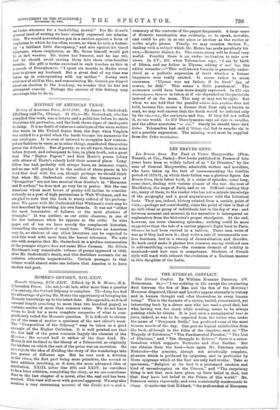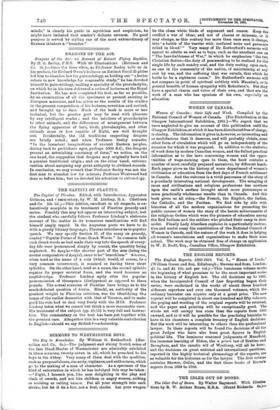THE ETERNAL CONFLICT.
The Eternal Conflict. By William Romaine Paterson. (W. Heinemann. 6s.)—" I see nothing in life except the everlasting duel between the Son of Man and the Son of the Morning ! However disguised, Christ and Lucifer appear eternally in history and in human thought and offer themselves to every human being." This is the keynote of a clever, turbid, overstrained, yet interesting book by a clever man who has read a good deal, but who, having run too much while reading, seems to be always panting while he thinks. It is just such a metaphysical tour de force, indeed, as was to be expected from the writer who, under the name of "Benjamin Swift," has produced some of the most bizarre novels of the day. One gets no logical satisfaction from the book, although in the titles of the chapters, such as "The Tragedy of Existence," The Fundamental Paradox," " The List of Illusions," and " The Struggle to Believe," there is a sensa- tionalism which suggests Nietzsche and Max Norden. But one obtains from the book—here again Mr. Paterson recalls Nietzsche—the genuine, though not artistically complete, pleasure which is produced by epigrams, and in particular by those epigrams which at the best are only half-truths. Take as specimens, "Religion at its best is a prolonged emotion and kind of eavesdropping on the Unseen," and " The surprising thing is not that men have given up their belief in God, but that they have lost belief in the Prince of this world." Mr. Paterson writes vigorously, and even occasionally condescends to sdaug. Considering that Eckhart. " the profoundest of .European
minds," is clearly his guide in mysticism and scepticism, he might have imitated that master's delicate sarcasm. No good purpose is served by styling one of the most extraordinary of German thinkers a "bounder."



























































 Previous page
Previous page